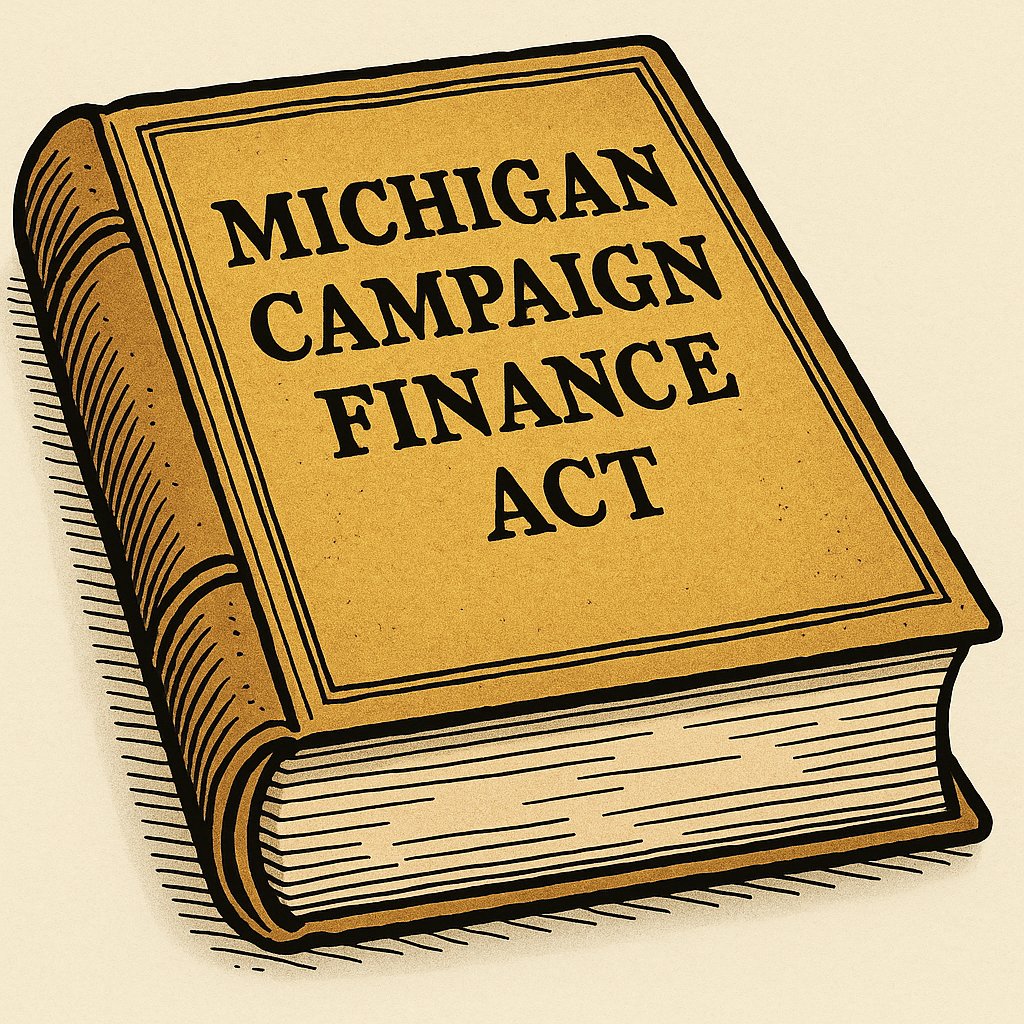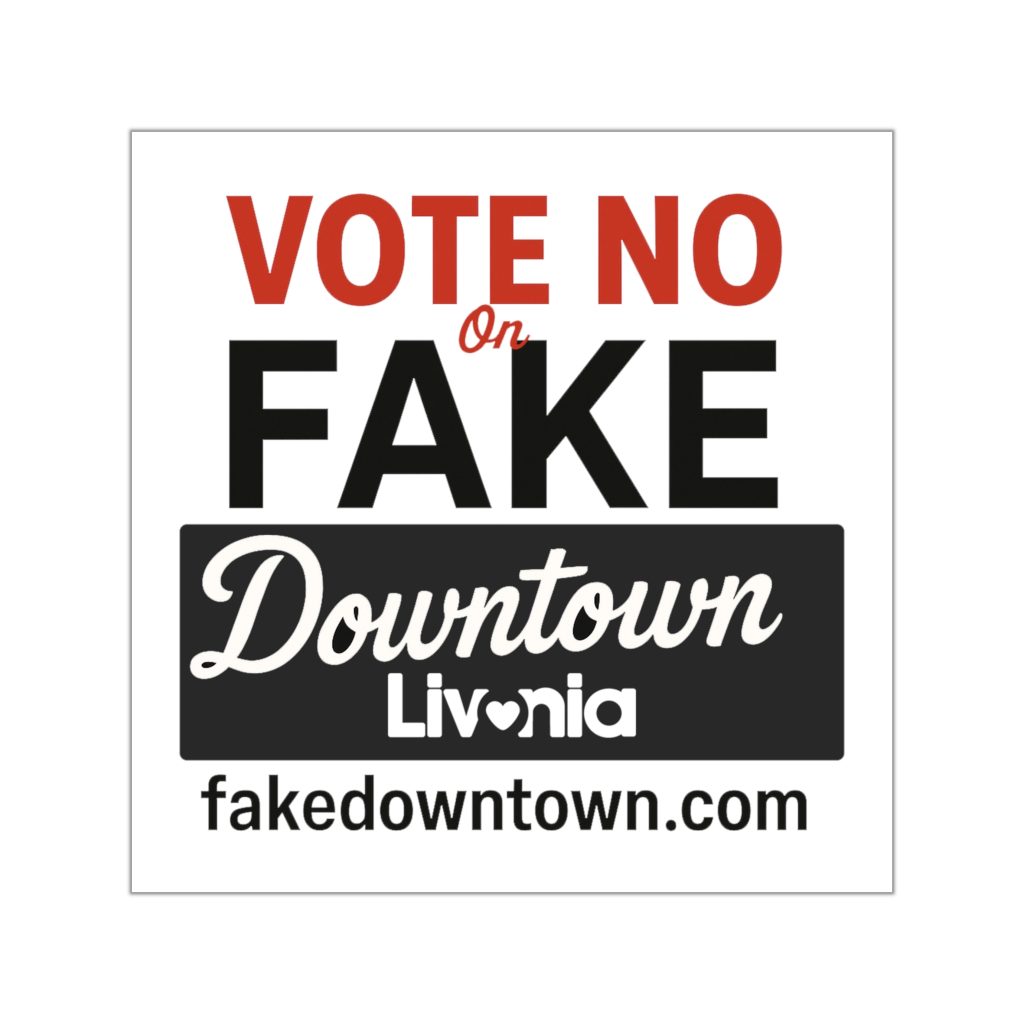Your cart is currently empty!
Is City sponsored LivoniaBuilt.org legal? A primer on Section 57 of The Michigan Campaign Finance Act

Recently the City of Livonia launched a new city sponsored website to promote the August 5th Millage. It even has its own domain name! But is this legal per the Michigan Campaign Finance Act? You decide.
Michigan Campaign Finance Act Section 57: Guide for Public Bodies
Overview
Section 57 of the Michigan Campaign Finance Act (MCFA) establishes strict restrictions on how public bodies can use taxpayer resources during election campaigns, including bond and millage elections. The law is designed to prevent public entities from using taxpayer dollars to influence election outcomes and maintain governmental neutrality in the democratic process.
What is Prohibited
Public Resources That Cannot Be Used
Public bodies are prohibited from using ANY of the following resources to promote or oppose campaigns:
- Funds (including tax revenue, grants, donations, or any money received by the public body)
- Personnel (employee time during work hours)
- Office space
- Computer hardware or software
- Property
- Stationery and postage
- Vehicles
- Equipment and supplies
- Any other public resources
Prohibited Activities
- Creating promotional materials like “Vote Yes” brochures, lawn signs, or buttons
- Purchasing advertising space or time
- Creating dedicated websites or domain names for ballot measures
- Mass mailings encouraging specific voting behavior
- Using public facilities exclusively for one side of a campaign
- Encouraging citizens to “vote for” or “vote against” ballot questions
What Counts as “Promotion”
Even seemingly neutral statements can be considered promotional, such as:
- “The millage will allow us to provide better police service”
- “This bond will improve our schools”
- Any language that advocates for a position rather than stating objective facts
What is Permitted
Factual Information Exception
Public bodies MAY share factual information that:
- Is backed by objective evidence
- Contains no words of express advocacy
- Is relevant to the function of the public body
- Is typically limited to the precise ballot language and basic facts
Examples of Permitted Content
- The exact text of the proposed millage or bond
- Basic facts about current tax rates
- Objective financial information
- Meeting dates and times for public discussions
Equal Access Requirements
If a public body allows one side to use public facilities or resources, it must provide equal access to opposing viewpoints.
Key Exceptions
1. Policy-Making Officials
Elected or appointed officials with policy-making responsibilities may express their views on ballot measures.
2. Personal Time and Resources
Public employees may participate in political activities when:
- Acting on their own behalf (not representing the public body)
- Using personal time
- Using personal funds and resources
- Not using any public resources
3. Regular Government Functions
Normal government operations like recording meeting minutes and publishing required notices are permitted.
Penalties for Violations
Individual Violations
- Fine: Up to $1,000
- Imprisonment: Up to 1 year
- Both fine and imprisonment possible
Organizational Violations
The greater of:
- Fine: Up to $20,000, OR
- Fine equal to the amount of improper expenditure
Best Practices for Compliance
Before Any Election-Related Communication
- Legal Review: Have all materials reviewed by qualified legal counsel
- Stick to Facts: Use only objective, verifiable information
- Avoid Advocacy: Remove any language that could be seen as promoting a position
- Equal Treatment: Ensure any resources made available are offered equally to all sides
Safe Approaches
- Limit communications to ballot language and basic procedural information
- Use existing communication channels rather than creating new ones
- Focus on when, where, and how to vote rather than how to vote
- Provide equal access to public forums and facilities
Red Flags to Avoid
- Creating new websites, social media accounts, or promotional materials
- Using emotional or persuasive language
- Highlighting benefits or positive outcomes
- Encouraging specific voting behavior
- Spending public money on campaign-related activities
Alternative: Ballot Question Committees
Citizens who want to advocate for ballot measures can form Ballot Question Committees, which:
- Can freely promote “Vote Yes” or “Vote No” campaigns
- Must register if spending over $500 annually
- Have reporting requirements but no content restrictions
- Can use private funds for advocacy that public bodies cannot
When to Seek Legal Counsel
Given the severe penalties and complexity of determining what constitutes “factual information,” public bodies should consult with election law attorneys when:
- Planning any election-related communications
- Uncertain whether proposed activities comply with Section 57
- Receiving requests to use public facilities for campaign purposes
- Facing questions about past activities’ compliance
Additional Considerations
60-Day Communication Restriction
Public bodies are also prohibited from using public funds for mass communications (radio, TV, mass mailing, prerecorded calls) that reference local ballot questions during the 60 days before an election.
Broad Definition of Public Funds
Remember that “public funds” includes ALL money received by the public body from any source, including donations and grants—not just tax revenue.
Documentation
Maintain clear records of how any election-related communications are funded and developed to demonstrate compliance if questioned.
Disclaimer: This guide provides general information about Michigan’s Campaign Finance Act Section 57. It is not legal advice. Public bodies should consult with qualified election law attorneys for specific guidance on compliance with these complex regulations.

Leave a Reply